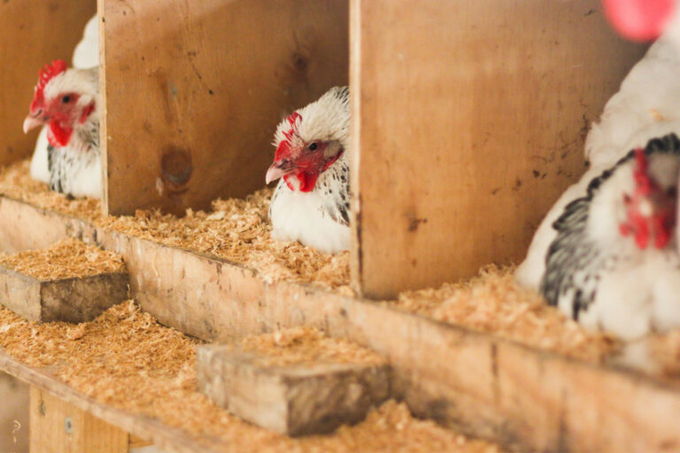May 24, 2025 | 16:26 GMT +7
May 24, 2025 | 16:26 GMT +7
Hotline: 0913.378.918
May 24, 2025 | 16:26 GMT +7
Hotline: 0913.378.918

It is advised that nest box are comfortable, quiet and enclosed for the hen. Photo: Canva
A recent literature review compiled information on factors that can affect the propensity of hens to lay floor eggs and management strategies that might prevent this behaviour from developing.
Their review included studies on factors affecting nest box use, genetics, rearing and early training, production cycle, and new technologies being developed for floor egg laying detection and management.
The online information was boosted by interviews with 10 egg producers within Australia to understand current management practices within the industry.
The right strategies at the right time
The study found that floor eggs are manageable if the right strategies are implemented during the rearing period and when the birds first start laying their eggs. This is more challenging for egg producers that purchase point-of-lay birds and have limited control over rearing conditions.
Understanding the behaviour and needs of a particular hen strain or flock is important given the multiple factors that can influence floor egg laying development. But, they said, floor egg laying may still develop if all causative factors are unable to be addressed.
Conclusions and applications
The research highlighted 11 key issues:
(Poultryworld)

(VAN) Alt Carbon has raised $12 million in a seed round as it plans to scale its carbon dioxide removal work in the South Asian nation.

(VAN) Attempts to bring down the price of the Japanese staple have had little effect amid a cost-of-living crisis.

(VAN) Fourth most important food crop in peril as Latin America and Caribbean suffer from slow-onset climate disaster.

(VAN) Shifting market dynamics and the noise around new legislation has propelled Trouw Nutrition’s research around early life nutrition in poultry. Today, it continues to be a key area of research.

(VAN) India is concerned about its food security and the livelihoods of its farmers if more US food imports are allowed.

(VAN) FAO's Director-General emphasises the need to work together to transform agrifood systems.

(VAN) Europe is facing its worst outbreak of foot-and-mouth since the start of the century.